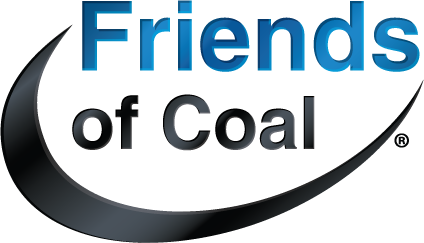- Details
More documentation in support of our thesis that the CO2 generated by coal utilization, whether burning it for power or converting it to liquid fuels, should, and can, be viewed and treated as a valuable raw material for additional, fuel-making processes.
An excerpt:
"Mitsui Chemical Inc. of Japan has decided to begin construction of a pilot plant for continued development of producing methanol from industrial CO2 effluent Due to build starting in October of 2008 with completion next February the plant is expected to go into use in March of 2010, the plant’s annual yield would work out to be the U.S. equivalent of over 33,000 gallons." and photocatalyst produced hydrogen.
And, again, the technology exists, and is being commercialized, by Exxon-Mobil at least, to convert methanol to gasoline. The Japanese effort sounds "small", but it might be appropriately-sized for Mitsui's chemical-production facility. The design could, we suspect, be scaled up.
- Details
We have, numerous times, elaborated on the potentially recoverable organic values left behind in various coal mine wastes. Here is yet another enterprise - like the planned WMPI facility in Schuykill, PA, which is intending to make liquid fuels - dedicated to the utilization of mine spoil.
Some excerpts:
"A West Virginia development group is hoping to squeeze out a little more energy from waste coal while whittling down mountains of gob in Greene County (PA - JtM)."
(A WV group, Mike, dedicating a project to use, and clean up, Pennsylvania coal mine waste.)
"Wellington also is to take over responsibility for treating acid mine drainage that is leaching from the gob pile. The treatment to prevent acid mine drainage pollution in the Monongahela costs $350,000 a year. It won't be needed once the gob pile is used up.
Gob piles have small bits of coal mixed in with slate and other waste. It won't burn as readily as pure coal, but it can be used with new boilers that have "circulating fluidized bed technology.""
So ... not only can we make money by using coal mine wastes to generate power, or make liquid fuels, we can also save money by obviating the need to treat those wastes - and, perhaps, as a bonus, satisfy some environmentalists' concerns by cleaning up the gob.
That's what's called win-win in the business world, isn't it?
And, don't forget one of the other environmental win-win's that should by now be clear from some of our earlier dispatches: We can capture CO2, from coal plant flues or the atmosphere itself, and use it as additional feed for CTL processes.
- Details
The excerpt:
"UOP LLC, a Honeywell company, announced that it will partner with the USC Loker Hydrocarbon Research Institute to develop and commercialize new technology to transform carbon dioxide into clean-burning alternative fuels."
Need we remind you that UOP/Honeywell are operating a coal-to-chemicals - sophisticated plastics manufacturing raw materials - plant in Kingsport, TN, based on Honeywell's very long history of extracting useful products from coal?
- Details
We'll trust the link opens. The researchers at Strathclyde are investigating, in essence, artificial - potentially industrial - means of converting CO2 based on natural processes.
Briefly:
"Fuel from CO2
Published: 11 March 2008 09:01 AM
Source: The Engineer
Source: The Engineer
Scientists at Strathclyde University are investigating the feasibility of converting CO2 into a fuel by mimicking the photosynthetic system of green plants."
- Details
The expected excerpt:
"Some fancy footwork with enzymes and a special kind of glass could offer a way to convert carbon dioxide emissions from power plants into methanol, says SIUC materials chemist Bakul Dave. He and a former student of his have demonstrated the feasibility of the idea on a laboratory scale."
This is laboratory scale, and we've already informed you of one commercial reduction to practice.
But, SIUC appears to be very active in coal utilization research, and we wanted to highlight more of their efforts and suggest, again, that solutions - profitable solutions - to the "problem" of coal-derived CO2 are both here, and on the way.

Join Friends of Coal
Be part of West Virginia's coal industry future. Together, we can continue building a stronger, more prosperous Mountain State by supporting our miners and communities.





